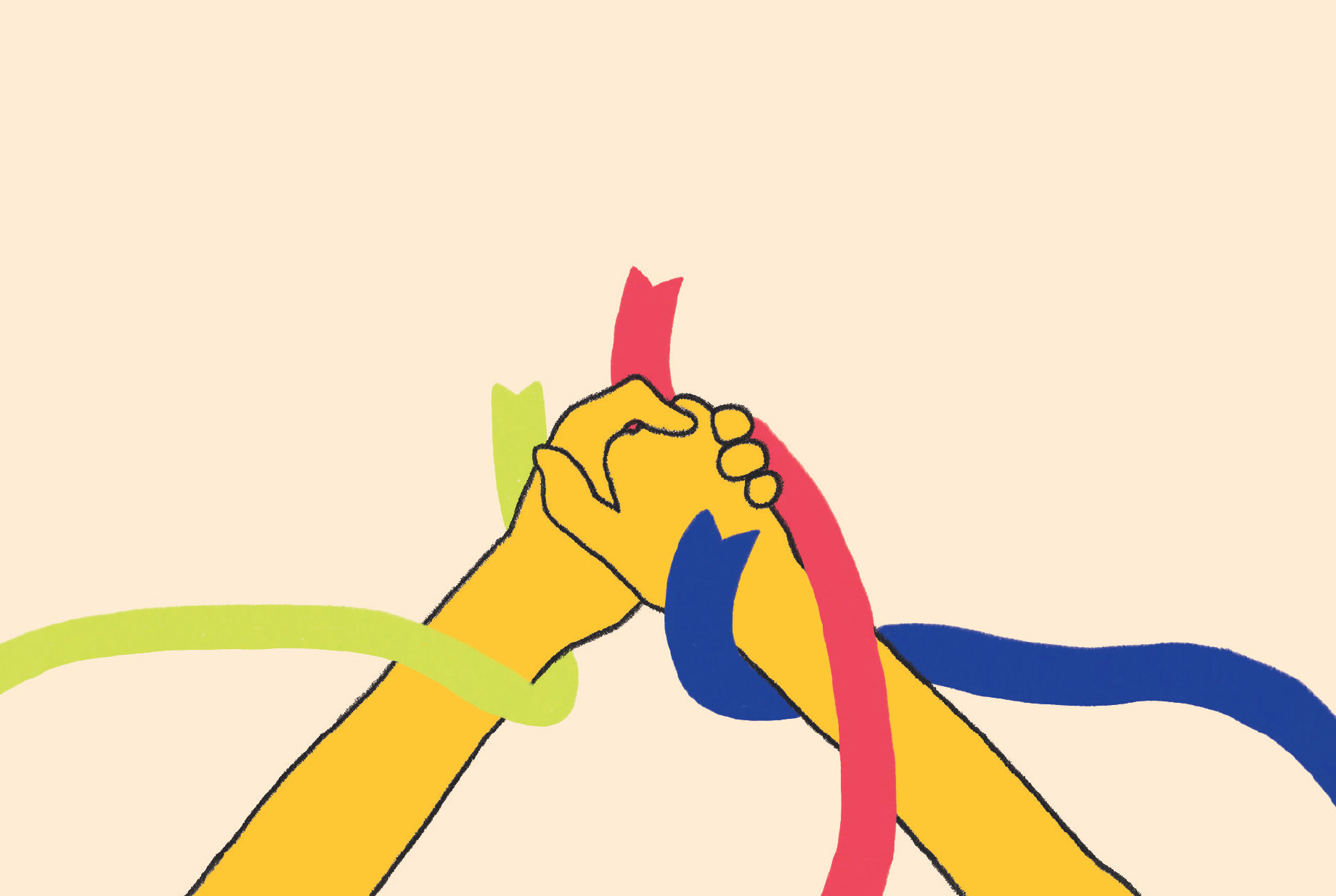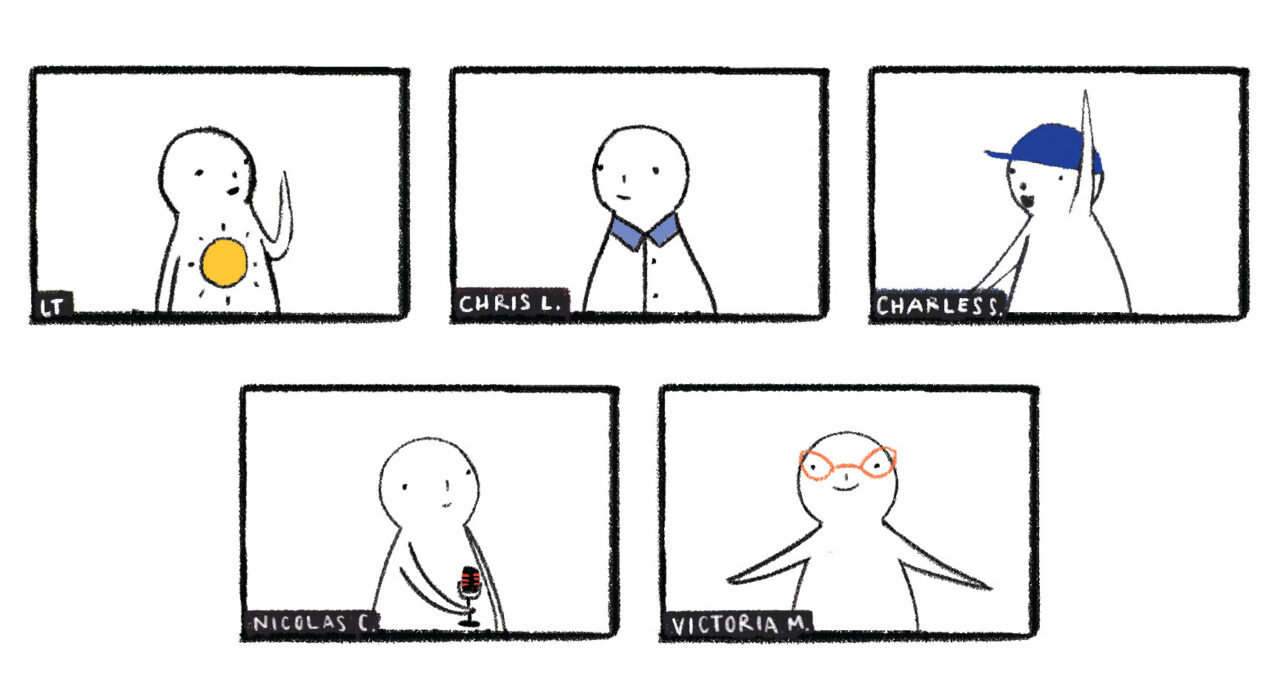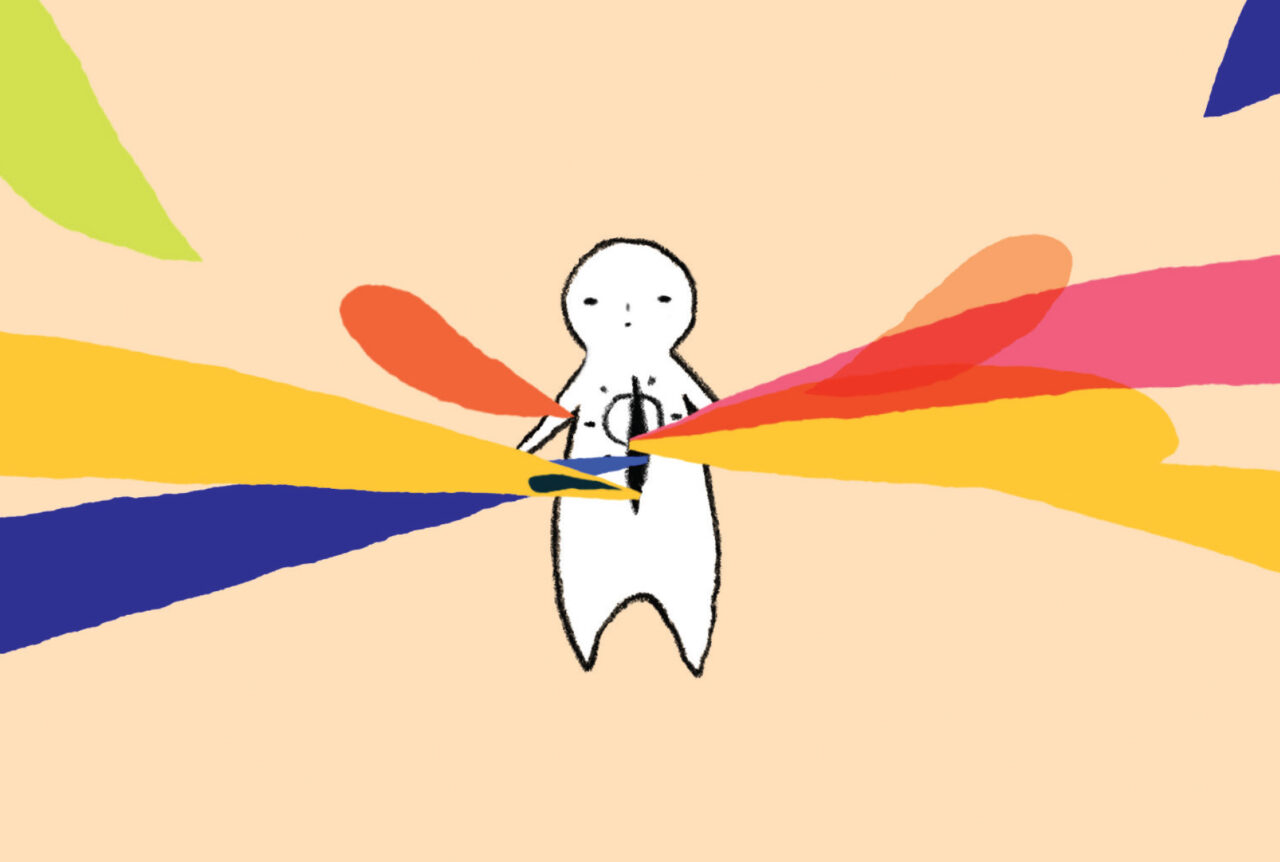Animated Series Helps Fight Stigma Through Storytelling

From the Challenging Stigma Through Storytelling animated series. (Image courtesy Health Design Lab / BC Mental Health and Substance Use Services)
Posted on | Updated
The three-part series, which tells the stories of three people with lived experience of challenges around mental health and addiction, was developed in partnership with the Health Design Lab at ECU.
A new animated miniseries aims to help combat stigma around mental health and addiction by sharing the stories of people with lived experience told in their own voices.
Titled Challenging Stigma Through Storytelling, the three-part series was developed by BC Mental Health and Substance Use Services (BCMHSUS) over the past year in collaboration with a team of designers and animators from the Health Design Lab (HDL) and Communication Design program at Emily Carr University.
Caylee Raber, director of the HDL, says Challenging Stigma is a project that aligns squarely with the lab’s broader aims as a hub for research and participatory design that address complex health challenges.
“At HDL we are focused on helping to create space and forums for people with lived experiences to have their voices amplified,” Caylee says. “Through projects such as Challenging Stigma, we aim to introduce students to ways of working that include meaningful collaboration with diverse perspectives and community-based co-design.”
During a recent interview on CBC’s the Early Edition, Malika Gill (BDes 2021), a designer who worked on Challenging Stigma as an animator during her final year at ECU, explained how her own perspectives were broadened during the making of the videos.
“Working on this project really gave me a chance to learn a lot more about what it’s like to live with [challenges] with mental health and substance use,” Malika told CBC host Stephen Quinn.
“Listening to the storytellers talk and going through all the audio of their conversations really taught me a lot about stigma and how widespread it really is … I learned that there’s a lot of lack of understanding and a lot of lack of empathy when it comes to people with mental health complexities and substance use.”
In foregrounding individual narratives, Challenging Stigma Through Storytelling helps address this empathy gap in part by fostering a patient-first care environment, says Kathryn Proudfoot, director of patient experience and community engagement at BCMHSUS.
“We follow the ‘nothing about us without us’ approach,” Kathryn says. “We understand that in order to accurately and appropriately serve the needs of patients of clients, we have to make space for their input from the very beginning. Without their bravery, collaboration, ideas and insights, this project would not have been possible.”

From the Challenging Stigma Through Storytelling animated series. (Image courtesy Health Design Lab / BC Mental Health and Substance Use Services)
Building agency for patients and participants is a theme not only for the BCMHSUS and the UNITE project, but for numerous Health Design Labs initiatives, including the Decolonizing the Healthcare System through Cultural Connections project; the Perspectives program; and the Come Alive project, of which Perspectives is a part.
Challenging Stigma Through Storytelling forms a part of the Understanding Each Other Together (UNITE) project: a “journey into our experiences of stigma to celebrate diversity and create change,” according to the BCMHSUS, which leads UNITE.
Stigma, as defined by Laura “LT” Todd, one of the storytellers in the videos, is “when you fail to see the person, and you instead see your stereotype of the person and treat them accordingly.” It is perpetuated culturally, institutionally, and socially. And it can lead to significant, measurable health risks.
“It pushes people to the shadows, which can be detrimental for marginalized individuals,” notes the BCMHSUS in its story on UNITE. “When people with mental health or addiction issues feel stigmatized, they may turn to using substances alone, thereby increasing the risk of overdose, or hide their mental health issues and needs from loved ones.”

From the Challenging Stigma Through Storytelling animated series. (Image courtesy Health Design Lab / BC Mental Health and Substance Use Services)
Storytelling, a timeless method for community-building and communication, is an ideal tool to combat stigma, notes the BCMHSUS. Stories can help shape public perception and foster empathy between strangers. But as Chris Lamoureux, one of the storytellers in the videos, notes, telling the story of one’s own journey can also be empowering for the storyteller.
“Working on this project has been incredible,” Chris says of working with UNITE. “It’s been transformative. Having an opportunity to make a difference and to be actively involved in reducing stigma through sharing my story has been an important part of the healing journey for me.”
Visit BCMHSUS online now to learn more about the UNITE program, and to watch all three parts of Challenging Stigma Through Storytelling. Visit the Health Design Lab online to learn more about their work on Challenging Stigma Through Storytelling, as well as about their other extraordinary initiatives.
--
Visit ecuad.ca to learn more about all of the research labs at Emily Carr University.